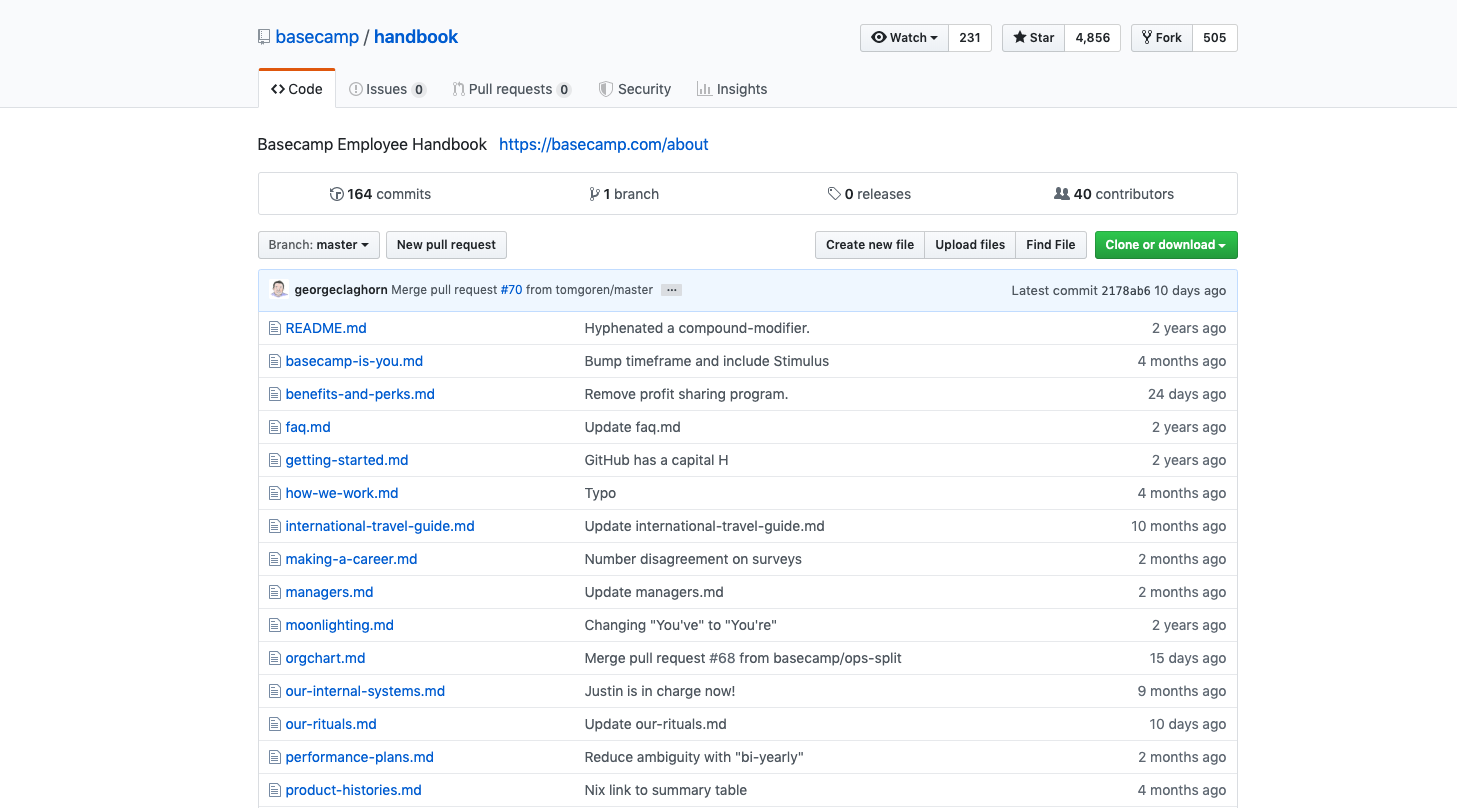GitHub is commonly used for version control of code projects. But especially for distributed teams, GitHub is also an incredible tool to manage resources and organize content. So much, that every single team at Github – be it marketing, sales or designers – use Gitub too.
In this article, I'm showing a few example use cases of using GitHub for remote teams.
Employee Handbook
Basecamp initially made a strong statement by making their employee handbooks public on GitHub. Since then, some companies have done the same thing, and it makes sense.
Regardless of whether the documents are public or not, GitHub allows you to store them in a generic format (GitHub is using Markdown), but thanks to their visual editor, people who don't write Markdown can simply use the visual editor.
All documents are versioned and checked in at any time. This means that no info can get removed without anyone knowing, and handbook history is always saved and stored safely.
Looking at the Basecamp handbook, it's incredibly handy to search through the whole repository for keywords - something that would not be possible with regular documents scattered around everywhere. Everything is set in a single repository, accessible for anyone.
Onboarding & Documents
Especially if your code is on GitHub, it makes sense to host your own documentation there too. Buffer is doing this, making it quite easy to follow along and visit linked repositories.
Many teams still have issues with getting new employees onboarded on the first few days. Hosting all documentation (even high-level one) on GitHub could be a great way to counteract this problem a little.
This is also not limited to technical documentation - whether you are hosting your corporate identity files, letterhead or sales leads on GitHub, it'll all be stored safely and versioned.
Project Planning
Should you want to go all-in on GitHub (in many cases it's a very good idea to centralize all work on a single platform), GitHub also offers Trello-like interfaces to do project planning and management, hooking right into Github Issues, Pull Requests and the rest of the repository.
As already mentioned, Github runs entirely on Github itself too (once I re-discover the source of this, I'll post it here), so this is not only a programmer-thing. Other teams can work in a similar fashion – add tasks using issues, communicate the status of this using Github Projects (can replace daily meeting) and push changes to the repository.
Whether it's simple organization of resources or running your full project management, GitHub has efficiently designed tools for it, that can help any remote team.
